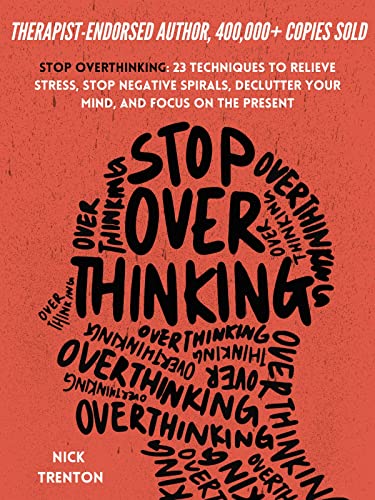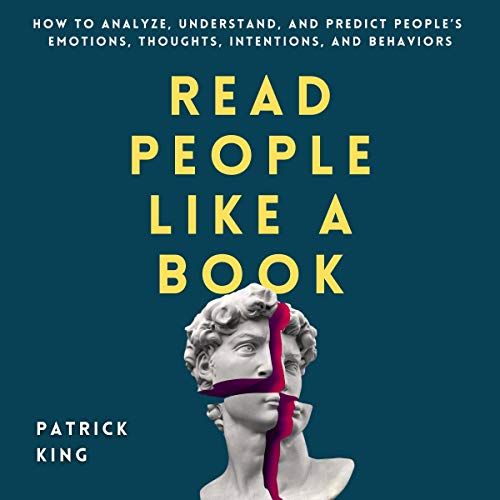Content Summary
Jealousy is a complex and often intense emotion that can arise in various contexts, including romantic relationships, friendships, or even professional settings. While jealousy is a natural human emotion, its intensity, and impact can vary greatly from person to person.
In this article, we will explore the nature of jealousy, its causes, whether it can be considered a mental illness, strategies for overcoming jealousy, and different types of jealousy.
Understanding Jealousy
Jealousy is an emotional response to a perceived threat or a fear of losing something or someone of value. It can be triggered by various factors, such as feelings of inadequacy, insecurity, possessiveness, or a lack of trust. Jealousy often stems from a fear of abandonment, rejection, or being replaced by someone else.
Causes of Jealousy
Insecurity and Low Self-Esteem: Individuals with low self-esteem or deep-seated insecurities may be more prone to experiencing jealousy. They may harbor feelings of inadequacy or fear that their partner or loved ones will find someone better.
Past Experiences: Previous experiences of betrayal, infidelity, or abandonment can shape an individual's perception of relationships and lead to heightened jealousy in future relationships.
Lack of Trust: A lack of trust in oneself or in others can contribute to jealousy. If trust has been broken in the past or there are unresolved issues within the current relationship, it can fuel feelings of jealousy.
Comparisons and Social Norms: Societal and cultural expectations, along with constant exposure to idealized images of relationships, can create a sense of competition and comparison, fostering jealousy.
Is Jealousy a Mental Illness?
Jealousy itself is not considered a mental illness. It is a common human emotion that can be experienced to varying degrees. However, excessive, irrational, and uncontrollable jealousy that significantly impacts daily functioning and relationships may be symptomatic of underlying mental health issues, such as anxiety disorders or obsessive-compulsive disorder (OCD). In such cases, seeking professional help can provide valuable support and guidance.
Overcoming Jealousy
Self-Reflection and Awareness: Cultivate self-awareness by examining the root causes of your jealousy. Understand your triggers and thought patterns to gain insight into why you experience jealousy and how it affects your relationships.
Open Communication: Communicate openly and honestly with your partner or loved ones about your feelings of jealousy. Share your concerns and fears, and work together to build trust and create a safe space for dialogue.
Build Self-Esteem: Work on developing self-esteem and self-worth. Engage in activities that promote self-care, personal growth, and self-compassion. Focus on your strengths and achievements to boost confidence.
Cultivate Trust: Trust is the foundation of healthy relationships. Focus on building trust by being reliable, honest, and transparent. Trust is earned over time through consistent actions and open communication.
Challenge Negative Thoughts: Learn to challenge and reframe irrational or negative thoughts associated with jealousy. Replace them with more balanced and realistic perspectives. Seek evidence to support or refute your jealous assumptions.
Develop Healthy Coping Strategies: Practice self-soothing techniques, such as deep breathing, mindfulness, or engaging in activities that help redirect your focus and manage anxiety. Develop healthy coping mechanisms to handle jealousy triggers.
Types of Jealousy
Romantic Jealousy: This type of jealousy is associated with concerns about a partner's perceived infidelity, attention towards others, or the fear of losing the romantic connection.
Friend-Based Jealousy: Jealousy can also manifest in friendships, triggered by feelings of exclusion, the fear of being replaced by new friends, or the perception of unequal attention.
Professional Jealousy: This type of jealousy arises in a professional setting, often linked to competition, comparison, or the fear of being surpassed by a colleague's success.
Most FAQs about Jealousy:
What is the Difference Between Jealousy and Envy?
Jealousy and envy are similar emotions, but they have distinct differences in their focus and underlying motivations. Here's a breakdown of their differences:
Jealousy:
Jealousy typically arises in interpersonal relationships and involves a fear of losing something or someone of value to a perceived rival. It often stems from a sense of possessiveness and a desire to protect what one already has. Jealousy can manifest in various contexts, such as romantic relationships, friendships, or professional settings.
Key features of jealousy include:
Triangular Nature: Jealousy often involves three parties—the person experiencing jealousy, the person they are jealous of (perceived rival), and the desired object or relationship.
Fear of Loss: Jealousy arises from a fear of losing something valuable, such as a romantic partner's attention or affection, a friend's loyalty, or a position of status or recognition.
Protective Motivation: Jealousy can motivate individuals to protect and preserve what they perceive as theirs, often through actions like monitoring, possessiveness, or attempts to control the situation.
Envy:
Envy, on the other hand, is rooted in a desire to possess what someone else has, whether it be their qualities, possessions, achievements, or status. Envy typically arises from a sense of inadequacy or longing for what others possess.
Key features of envy include:
Two-Party Focus: Envy typically involves two parties—the person experiencing envy and the person they envy, who possesses something they desire.
The desire for what Others Have: Envy is driven by a longing to possess or achieve what someone else already possesses, such as beauty, success, material possessions, or social status.
Comparative Motivation: Envy can motivate individuals to compare themselves to others, leading to feelings of resentment, self-doubt, or a sense of inferiority.
In summary, jealousy revolves around the fear of losing what one already possesses, while envy centers on a desire to obtain what others possess. Jealousy is more focused on relationships and the fear of losing someone or something, while envy is more focused on material possessions, qualities, or achievements of others.
Understanding the differences between jealousy and envy can help individuals better navigate and manage these emotions in their personal lives.
How Do You Know if Someone is Jealous of You?
Recognizing if someone is jealous of you can be challenging as jealousy can manifest in various ways, and individuals may not openly express their feelings. However, there are some common signs that may indicate someone is experiencing jealousy:
Passive-Aggressive Behavior: Jealous individuals may exhibit passive-aggressive behavior, such as making backhanded compliments, giving insincere praise, or engaging in subtle forms of sabotage.
Excessive Criticism or Belittling: Jealousy can lead individuals to criticize or belittle your accomplishments, skills, or qualities as a way to undermine your confidence and achievements.
Competitiveness: Jealous individuals may display an excessive need to compete with you in various areas of life, trying to outdo or surpass your accomplishments.
Lack of Support or Enthusiasm: Instead of showing genuine support or enthusiasm for your successes or good news, jealous individuals may respond with indifference, dismissiveness, or even try to downplay your achievements.
Constant Comparison: Jealous individuals may continuously compare themselves to you, often feeling inadequate or inferior. They may focus on highlighting perceived shortcomings in an attempt to make themselves feel better.
Backbiting or Gossiping: Jealousy can lead to the spread of rumors, gossip, or negative talk about you in an attempt to tarnish your reputation or undermine your relationships.
Mimicking or Imitating: Some individuals may try to imitate your behavior, style, or choices in an effort to compete with you or gain the same recognition or attention you receive.
Withholding Information or Opportunities: Jealous individuals may intentionally withhold information, resources, or opportunities that could benefit you, depriving you of potential growth or success.
It's important to approach these signs with empathy and understanding, as individuals experiencing jealousy may be struggling with their own insecurities and feelings of inadequacy.
However, it's essential to set boundaries, maintain your self-confidence, and focus on your personal growth and well-being. If the jealousy becomes toxic or affects your mental and emotional health, consider seeking support from trusted friends, family members, or professionals who can provide guidance and help you navigate the situation.
Is Jealousy a Toxic Feeling?
Jealousy can be a complex and multifaceted emotion, and its impact can vary depending on how it is experienced and expressed. While jealousy itself is not inherently toxic, it has the potential to become toxic if it is not effectively managed or if it negatively affects relationships and individuals involved.
Here's why jealousy can be considered toxic:
Destructive Behaviors: Uncontrolled jealousy can lead to destructive behaviors, such as possessiveness, controlling tendencies, or attempts to undermine or sabotage others. These behaviors can harm relationships, erode trust, and create an unhealthy dynamic.
Negative Emotional States: Jealousy often triggers negative emotions such as anger, resentment, insecurity, or feelings of inadequacy. These intense emotions can lead to a cycle of negativity, causing distress for the individual experiencing jealousy and potentially impacting their well-being.
Strained Relationships: Jealousy, when not addressed or managed appropriately, can strain relationships. It can create an atmosphere of mistrust, conflict, and constant comparison, making it difficult to cultivate healthy and supportive connections.
Limiting Personal Growth: Jealousy can hinder personal growth and development. When individuals are consumed by jealousy, they may spend excessive time and energy focusing on others' accomplishments or possessions instead of working towards their own goals and aspirations.
Undermining Self-Worth: Persistent jealousy can negatively impact an individual's self-esteem and self-worth. Comparing oneself to others and feeling inadequate can lead to a diminished sense of self and hinder overall happiness and fulfillment.
It is important to note that experiencing occasional moments of jealousy is a normal part of being human. However, when jealousy becomes pervasive, all-consuming, or leads to toxic behaviors, it is crucial to address and manage it.
This may involve developing self-awareness, enhancing communication skills, cultivating self-esteem, and seeking support from trusted individuals or professionals.
By understanding and managing jealousy in healthy ways, individuals can foster stronger relationships, prioritize personal growth, and cultivate more positive and fulfilling emotional well-being.
How to Stop Being Jealous?
Overcoming jealousy can be a challenging process, but with self-reflection, awareness, and targeted strategies, it is possible to reduce its impact. Here are some steps to help you stop being jealous:
Recognize and Acknowledge Your Jealousy: The first step is to acknowledge and accept that you are experiencing jealousy. Understand that jealousy is a normal emotion but also recognize its negative impact on your well-being and relationships.
Identify the Triggers: Explore the specific triggers that evoke jealousy within you. Reflect on situations, thoughts, or circumstances that tend to spark feelings of jealousy. Understanding your triggers can help you develop strategies to manage them effectively.
Challenge Your Negative Thoughts: Challenge the irrational and negative thoughts associated with jealousy. Question the validity of your assumptions and actively replace them with more balanced and realistic perspectives. Seek evidence to support or refute your jealous thoughts.
Build Self-Esteem and Self-Confidence: Focus on building your self-esteem and self-confidence. Engage in activities that promote self-care, personal growth, and self-compassion. Celebrate your own accomplishments and strengths, cultivating a positive self-image.
Communicate Openly and Honestly: Practice open and honest communication with your partner, friends, or loved ones. Share your feelings of jealousy, concerns, and fears in a non-confrontational and non-accusatory manner. Clear and empathetic communication can foster understanding and strengthen relationships.
Cultivate Trust: Recognize that trust is fundamental in any healthy relationship. Work on building trust with your partner or loved ones through open communication, reliability, and consistent actions. Trusting others and yourself can help alleviate feelings of jealousy.
Practice Mindfulness and Self-Care: Engage in mindfulness practices that help you stay present and focused on the positive aspects of your life. Practice self-care activities that promote relaxation, stress reduction, and overall well-being. This can include activities such as meditation, exercise, journaling, or engaging in hobbies.
Seek Support and Professional Help: If your jealousy persists and significantly impacts your well-being or relationships, consider seeking support from trusted friends, family members, or professionals such as therapists or counselors. They can provide guidance, support, and additional strategies tailored to your specific situation.
Remember, overcoming jealousy is a personal journey that requires self-reflection, patience, and consistent effort. It may take time, but with dedication and self-awareness, you can cultivate healthier thought patterns, improve your relationships, and experience greater emotional well-being.
What are the Different Types of Jealousy?
Jealousy can manifest in different forms and contexts. Here are some common types of jealousy:
Romantic Jealousy: This type of jealousy occurs within romantic relationships and involves concerns about a partner's perceived infidelity, emotional connection with others, or attention given to someone else. It often stems from a fear of losing the partner's love, affection, or commitment.
Friend-Based Jealousy: Friend-based jealousy involves feelings of jealousy within friendships. It can arise when one friend perceives that another friend is becoming closer to someone else or when there is a fear of being replaced or left out. This type of jealousy can be rooted in feelings of insecurity or the fear of losing a valued friendship.
Sibling Jealousy: Sibling jealousy refers to jealousy that can occur among siblings, typically in situations where one sibling perceives favoritism or unequal treatment from parents or caregivers. It can involve a sense of competition for attention, affection, or resources within the family.
Professional Jealousy: Professional jealousy occurs in work or professional settings. It involves feeling envious or resentful toward colleagues who achieve success, recognition, or promotions. This type of jealousy can arise from a desire for professional advancement or feelings of inadequacy compared to others.
Material Possession Jealousy: Material possession jealousy is centered around envy related to the possessions or material wealth of others. It involves coveting what others have, such as their house, car, gadgets, or other material possessions. This type of jealousy can stem from a desire for status, a fear of missing out, or a perceived lack of material success.
Creative Jealousy: Creative jealousy occurs among artists, writers, or creators. It involves feeling envious or competitive with others who achieve recognition or acclaim in their creative endeavors. This type of jealousy can arise from a desire for validation or the fear of being overshadowed or unrecognized.
It's important to note that these types of jealousy can overlap, and individuals may experience more than one type simultaneously. The underlying emotions and motivations behind jealousy can vary, but understanding the specific context in which jealousy arises can help in addressing and managing these feelings effectively.
Author's Choice of Self-Educational Tools about Jealousy and Body Language:



Conclusion
Jealousy is a complex emotion that can have both positive and negative effects on relationships. It is important to differentiate between healthy jealousy, which can be a normal part of human relationships, and excessive, destructive jealousy which can harm individuals and partnerships.
By fostering self-awareness, open communication, building trust, and developing healthy coping strategies, individuals can navigate jealousy and foster healthier, more fulfilling relationships.
Gain Control Over Your Emotions and Live in Peace with Yourself!!!
Relevant Reads>>>













